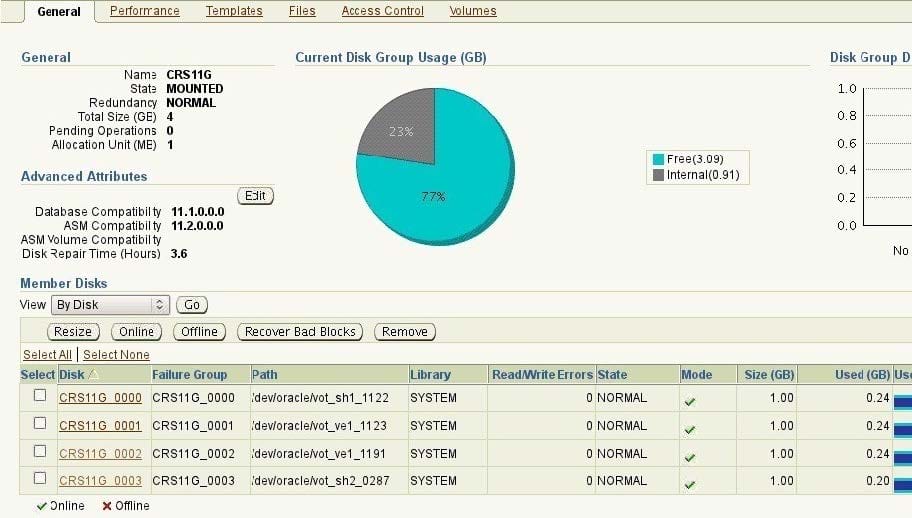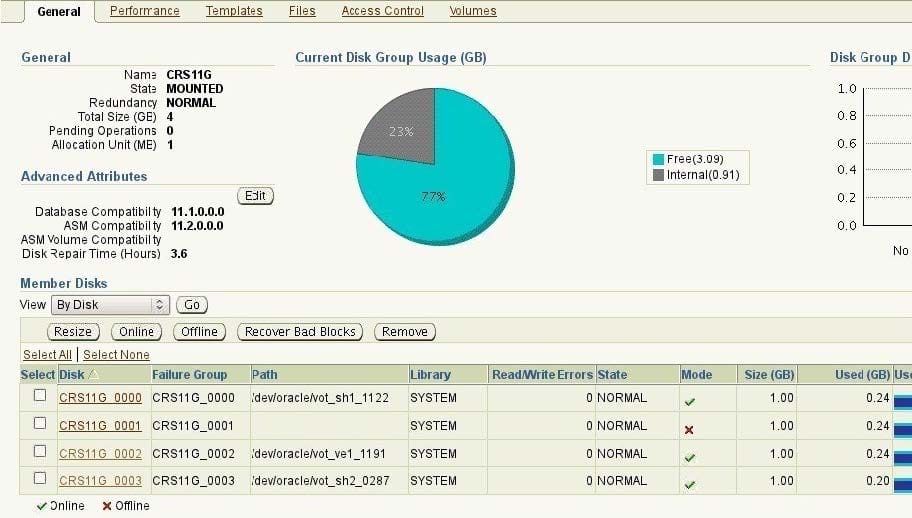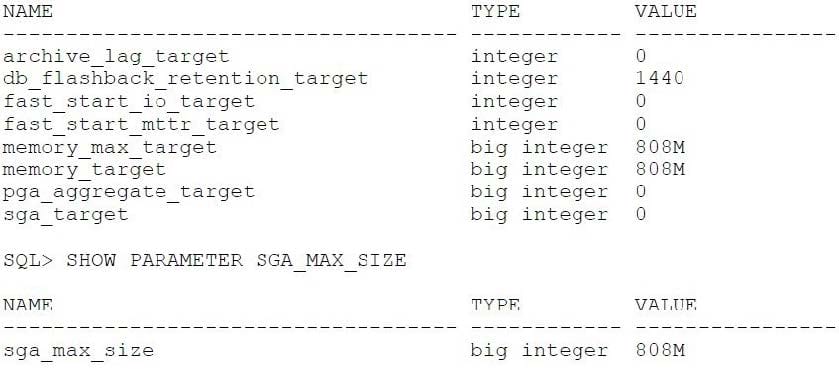
1Z0-053 Exam Questions & Answers
Exam Code: 1Z0-053
Exam Name: Oracle Database 11g: Administration II
Updated: Apr 21, 2024
Q&As: 736
At Passcerty.com, we pride ourselves on the comprehensive nature of our 1Z0-053 exam dumps, designed meticulously to encompass all key topics and nuances you might encounter during the real examination. Regular updates are a cornerstone of our service, ensuring that our dedicated users always have their hands on the most recent and relevant Q&A dumps. Behind every meticulously curated question and answer lies the hard work of our seasoned team of experts, who bring years of experience and knowledge into crafting these premium materials. And while we are invested in offering top-notch content, we also believe in empowering our community. As a token of our commitment to your success, we're delighted to offer a substantial portion of our resources for free practice. We invite you to make the most of the following content, and wish you every success in your endeavors.

Download Free Oracle 1Z0-053 Demo
Experience Passcerty.com exam material in PDF version.
Simply submit your e-mail address below to get started with our PDF real exam demo of your Oracle 1Z0-053 exam.
![]() Instant download
Instant download
![]() Latest update demo according to real exam
Latest update demo according to real exam
* Our demo shows only a few questions from your selected exam for evaluating purposes
Free Oracle 1Z0-053 Dumps
Practice These Free Questions and Answers to Pass the Oracle Database Application Development Exam
Immediately after adding a new disk to or removing an existing disk from an ASM instance, you find that the performance of the database goes down initially until the time the addition or removal process is completed, and then gradually becomes normal.
Which two activities would you perform to maintain a consistent performance of the database while adding or removing disks? (Choose two.)
A. Define the POWER option while adding or removing the disks.
B. Increase the number of ARB processes by setting up a higher value for ASM_POWER_LIMIT.
C. Increase the number of DBWR processes by setting up a higher value for DB_WRITER_PROCESSES.
D. Increase the number of slave database writer processes by setting up a higher value for DBWR_IO_SLAVES.
Examine the CREATE DISKGROUP command used to create a disk group:
SQL> CREATE DISKGROUP misc EXTERNAL REDUNDANCY DISK 'ORCL: FRA3' NAME misc1, 'ORCL: FRA4' NAME misc2;
In which situation would you use this method of disk group creation?
A. When two-way disk mirroring is required for the allocation units
B. When three-way disk mirroring is required for the allocation units
C. When using hardware mirroring or RAID
D. When disk mirroring is required for the Automatic Storage Management (ASM) disks
View Exhibit1 to examine the CRS11G disk group when all the disks are online. View Exhibit2 to examine the CRS11G disk group when one disk is offline.
Why is the rebalancing not performed and the content of the disk group not empty in Exhibit2?
ASM-disk-group-1 (exhibit): ASM-disk-group-2 (exhibit):


A. Because the disk group is created with NORMAL redundancy
B. Because the disk repair time attribute is set to a nonzero value
C. Because the mirrored extents cannot be rebalanced across the other three disks
D. Because the other three disks have 60% free space, the disk rebalancing is delayed
Examine the parameter setting in your database: Which statement is correct about the database?

A. Automatic memory management is disabled because PGA_AGGREGATE_TARGET and SGA_TARGET are not set
B. The instance is started but the database will not be opened until PGA_AGGREGATE_TARGET and SGA_TARGET are set
C. The database is opened but users cannot perform transactions until PGA_AGGREGATE_TARGET and SGA_TARGET are set
D. Automatic memory management is enabled and, as per policy, 60% of the memory for System Global Area (SGA) and 40% of the memory for Program Global Area (PGA) will be distributed at startup
Which files will you need to perform a full recovery of a database backed up in NOARCHIVELOG mode? (Choose all that apply.)
A. Database datafiles
B. Control files
C. Archived redo logs
D. Online redo logs
E. Flashback logs
Viewing Page 1 of 3 pages. Download PDF or Software version with 736 questions

